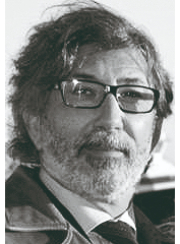Francesc Illas (1954) obtained his chemistry degree and Ph. D at the Universitat de Barcelona where he became Full Professor of Physical Chemistry in 1992. He visited different research centres (IBM Almaden Research Center and Los Alamos National Laboratory) and has been invited professor at Universita’ della Calabria and Université Pierre et Marie Curie. He received the Distinguished Professor Mention for the Research Promotion awarded by the Generalitat de Catalunya in 2001, the Bruker Physical Chemistry Research Award of the Spanish Royal Society of Chemistry in 2004 and the ICREA Academia Award in 2009 and again in 2015. In 2009 was elected Fellow of the European Academy of Sciences. In 2012 he joined the Editorial Board of Surface Science and of Theoretical Chemistry Accounts. In 2017 he was elected member of Academia Europeae. He published over 600 papers which received more than 18000 citations (WoS h-index = 66; Google Scholar h-index = 73). He is now Director of XRQTC.

Francesc Illas Riera
ICREA Academia 2009 & 2015
Universitat de Barcelona · Experimental Sciences & Mathematics

Research interests
In a broad sense, the research activities of Francesc Illas develop in the field of computational materials science where computers are used to investigate the properties of molecules, nanostructures and solids. The main goal of this scientific discipline is to make use of first principles methods based on quantum mechanics to provide information not easily accessible from experiments and, at the same time, to contribute to unbiased interpretation of observed phenomena. The research being now carried out has a strong focus on properties of materials governed by magnetic coupling, involves the study of the atomic and electronic structure and chemistry of isolated and supported nanoparticles and, encompass unraveling molecular mechanisms of heterogeneous catalysis in various technologically relevant processes. The ultimate main aim is to contribute to the design of new materials with tailored physical and chemical properties.
Keywords
Computational materials science, theory in catalysis and photocatalysis.